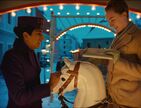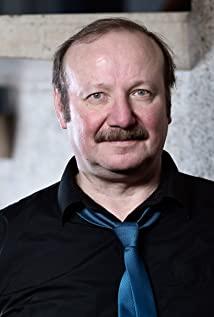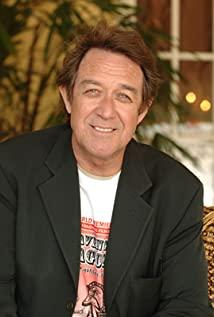Text/Ghost Seven
Wes Anderson’s imagination and unique nostalgia once again spread freely in the "Budapest Hotel", inheriting the usual film style, and the quirky and gorgeous layout of "Budapest Hotel" still let Wess • Anderson's fans can have another addiction.
A long, long time ago...
"Budapest Hotel" tells the adventure story of a once prominent resort hotel and its owner, just as all legends must have a wonderful and fascinating beginning, "Budapest Hotel" "Hotel" starts with a flashback-in front of a writer’s monument, a girl is reading his work. The novelist tells of his encounter with the owner of the restaurant Mustafa in the Budapest Grand Hotel many years ago. The story, and Mustafa recalled his legendary experience with Gustavo, the true owner of the hotel. Until here, the protagonist of the film really appeared. In the multi-layered narrative framework, Gustavo appeared from the first moment, and for the audience, it has become a unique existence through word of mouth. In this kind of observation with a sense of distance, the film successfully places Gustavo in the visible and unattainable history. In other words, all the designs that the film has worked hard on: nostalgic screen ratios, overhead story backgrounds, fairy tale-like shapes and scenery, gamified plot designs, and the main story that comes out after many calls are all for the same The purpose is to turn the film into a story "a long, long time ago", a legend.
Of course, such legends have always been Wes Anderson's masterpiece, and Gustavo is also full of wonderful personal charm. As the foreman of the Budapest Grand Hotel, the ancient gentleman’s etiquette seems to him to be almost the foundation of life. , Always meticulously, quoting poetry casually, dating the ladies who came to the hotel, and respecting them from the heart, and it is all of these things that are almost as ridiculous as the old-fashioned medieval superstition in the eyes of modern people. The most praiseworthy part of Mr. Stavor is also the important reason why Mrs. D, who had dated him, left his inheritance to him after his death. The European aristocratic reservedness and courtesy, as well as the respect for justice and humanity represented by Gustavo are in sharp contrast to the brutality and bloodliness of Europe during World War II in the background of the film. In the two episodes of being checked by the army on the train, this conflict eventually led to the killing of Mr. Gustavo, but this martyrdom-like sacrifice became an elegy for the departed gentleman. Wes Anderson returned to the simplest humanism here, no matter what era, Gustavo will always be respectable.
Laughter with tears is life
Of course, "The Grand Budapest Hotel" also arranges multiple stories and characters in multiple stories. At the core, what we see is Gustavo’s perseverance and destruction. In Mustafa’s narrative, there is also his role as The growth story of a doorman, including the adventure story of following Gustavo’s escape from prison, escape, and revealing the truth, as well as his own love story. In Mrs. D’s inheritance dispute, fierce thugs, upright lawyers, and various characters take turns On the stage, under the extremely exaggerated and black humorous film style, all these characters and stories are as colorful as the film itself, so that in the process of Mrs. D’s son and Gustavo competing for the famous painting, this The sense of joke and comedy has reached its peak. We were smoothly brought into the memory of the past by the director. Just like the main perspective that is constantly switched in the film, we sometimes substitute Mustafa and Mr. Gustavo to go together. The adventure is moved by the passion of the old days, but the young writer is sitting at the table listening to the memories of Mustafa, heartbroken for the passing of his lover, the rich emotional experience provided by the film and the changes of the vicissitudes of life become in " The most touching thing behind the “indecent” form is also in the midst of such a switch of great sadness and joy. Wes Anderson condensed all kinds of life experiences in less than two hours of filming, at the Budapest Grand Hotel. Under the eaves of the roof, the story of Mr. Gustavo and Mustafa has become a window for us to peek into the joys and sorrows of life and tears of laughter.
Until the end of the film, we stepped back to reality from the fairy tales constructed by the director, and suddenly discovered that, unlike the core world full of weird and magnificent colors, the closer to reality, the more plain the world is. And rough and simple, at the end, we return to the opening scene, with the girl in the park, quietly reading the text in the book. Legendary stories have become records in black and white. The heroes gradually fade and become distant memories. When the film is over, we may be the same as that girl, closing the book and sighing to ourselves, for the old days that are gone forever.
Originally published in "Modern Family·Life" August 2014
View more about The Grand Budapest Hotel reviews











